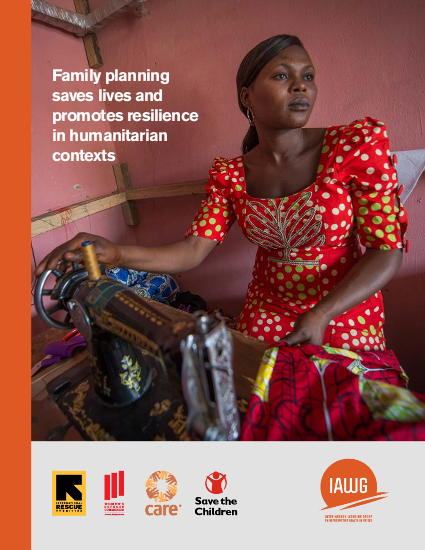
Globally, it is estimated that 128.6 million people are currently in need of humanitarian assistance. Of these individuals, approximately one-fourth are women and girls of reproductive age. Although family planning is one of the most life-saving, empowering, and cost-effective interventions for women and girls, it remains an overwhelming gap in emergency responses due to a lack of prioritisation and funding. Consequently, many women and girls are forced to contend with an unmet need for family planning and unplanned pregnancies in addition to the traumas of conflict, disaster, and displacement.
The Family Planning Summit (FP Summit), convened in London on 11 July 2017, presents a critical opportunity to accelerate efforts to deliver family planning to women and girls globally— including those affected by humanitarian crises. In preparation, on 4 May 2017, the Inter-agency Working Group for Reproductive Health in Crises (IAWG) convened an expert consultation on family planning in humanitarian contexts, on behalf of the humanitarian workstream of the 2017 FP Summit, including DFID, the Bill & Melinda Gates Foundation and UNFPA. At the expert consultation, IAWG members presented their experiences providing family planning in diverse humanitarian contexts, demonstrating that there is consistent demand for family planning services and that it is feasible to provide them, even in the most challenging contexts.
Building on this momentum, the International Rescue Committee, in partnership with Care, Save the Children and the Women’s Refugee Commission, organised a donor consultation on 7 June 2017 to seek input from donors and stakeholders to shape messages and recommendations for the London FP summit. This paper is a synthesis of the findings developed through both consultations and identifies collaborative solutions and actions to be taken at the FP Summit and beyond.